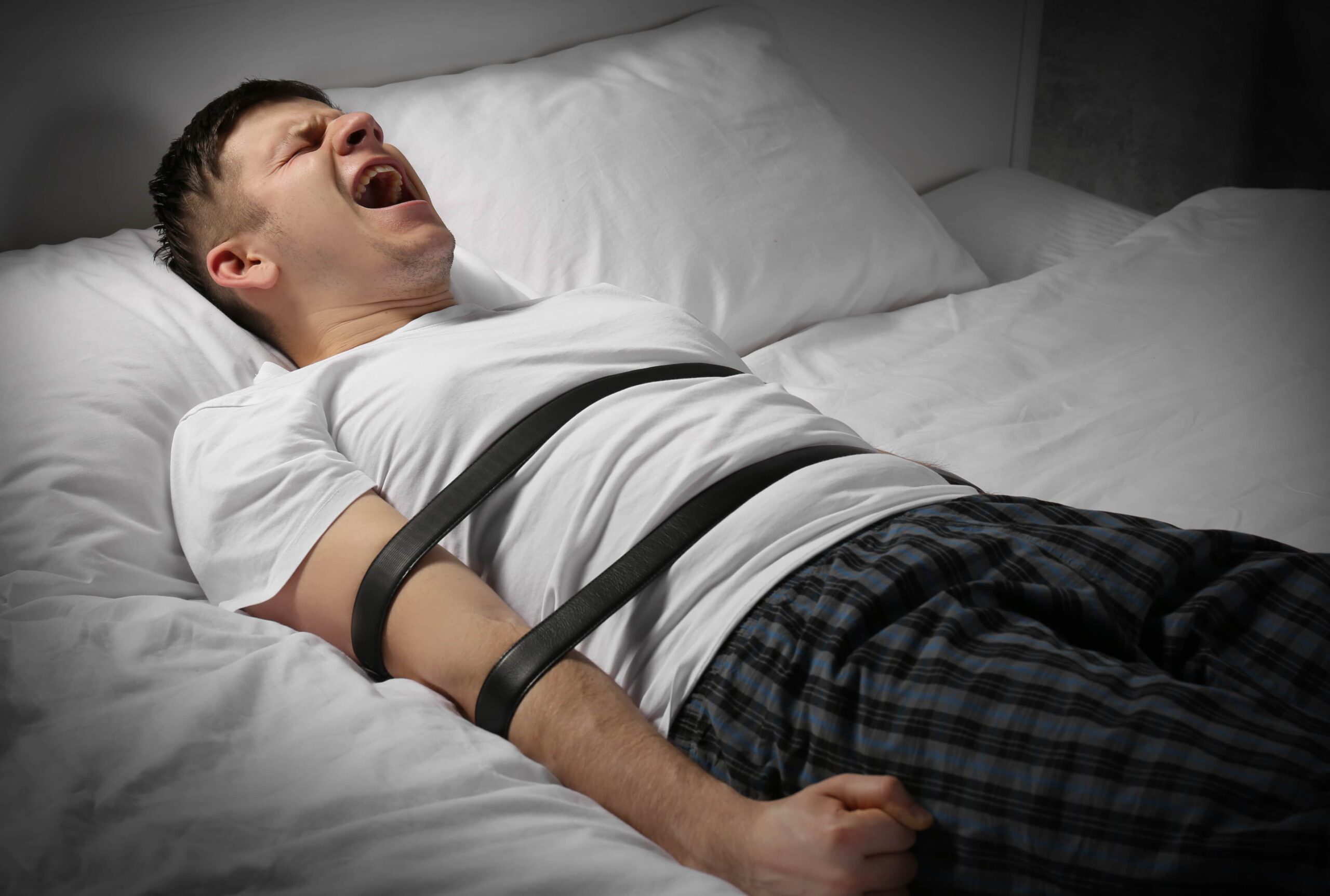Sleep paralysis is when a person is temporarily unable to move or speak while falling asleep or waking up, often accompanied by a feeling of pressure on the chest and a sense of dread or fear. This happens when the brain remains aware, while the body undergoes muscle atonia, a natural process that prevents us from acting out our dreams during Rapid Eye Movement (sleep). Sleep paralysis can be distressing but it is usually harmless and tends to last only a few seconds to a few minutes, it often occurs in people that have narcolepsy or sleep apnea, but it can affect anyone.
Sleep paralysis is caused by disruptions in the normal sleep-wake cycle, however, several factors can contribute to its occurrence: sleep deprivation is one of these factors, not getting enough sleep or experiencing irregular sleep patterns can increase the likelihood of sleep paralysis. Frequent changes in sleep patterns or irregular sleep-wake schedules can disrupt the body’s sleep cycle. Another cause of sleep paralysis is sleeping position, some position such as sleep on your back can increase the likelihood of sleep paralysis. People with Narcolepsy a neurological disorder that affects sleep regulation, are prone to experiencing sleep paralysis.
There is no specific cure for sleep paralysis, however, certain measures can be taken to reduce the frequency. Regular sleep schedule can be done by maintaining a consistent sleeping and waking time. Also, if you sleep on your back, you can switch positions by sleeping on the side, lastly, it is important to treat underlying conditions such as apnea, narcolepsy, and other sleep disorders as treating these conditions can help reduce sleep paralysis episodes.


